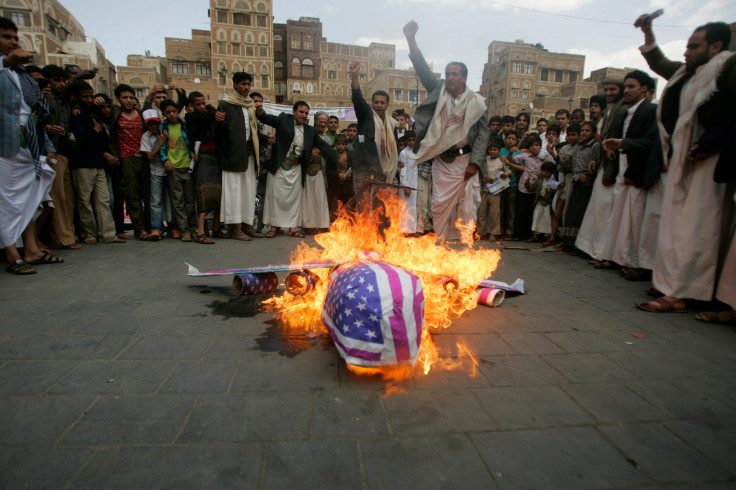Trump Travel Ban Update: Yemen Stops US Military Anti-Terror Troops From Fighting

Yemen has halted the United States from conducting Special Operations ground missions against suspected terrorist groups in the country. The move comes following the civilian deaths due to the botched raid last month, which was the first commando raid authorized by President Trump
Senior officials told the New York Times, that the Yemeni ban does not include military drone attacks and also does not affect the American military advisers that are aiding Yemenis and forces from the United Arab Emirates.
Besides the loss of a helicopter worth $75 million and the death of several civilians including children, the loss from the "botched" raid, which the White House has repeatedly characterized as a success, also included a member of the Navy’s SEAL Team 6, Chief Petty Officer William Owens. Among those killed in the raid conducted on Jan. 29, also includes the 8-year-old daughter of Anwar al-Awlaki, the Yemeni-American al-Qaida leader who was killed in a U.S. drone strike in 2011.
Despite the warnings of several top ex-senior officials including a former CIA and NSA director, who had said that Trump’s travel ban could endanger troops and hurt national security, it is still unknown at the time if the Yemeni ban is a form of retribution towards the Trump executive order that disallowed refugees from seven predominantly Muslim countries including–Yemen (before being temporarily revoked). But what is clearly evident is how the Yemeni government officials were outraged by the civilian casualties caused due to the raids.
The country’s foreign minister, Abdul Malik Al Mekhlafi, for instance, dubbed the raid as “extrajudicial killings,” through his own twitter account. Similarly, Ahmed Awad bin Mubarak, Yemen’s ambassador to the United States, said that President Abdu Rabbu Mansour Hadi on Feb. 2, expressed his worries about the raid in a meeting with the American ambassador.
Yet, Sean Spicer, White House Press secretary, Tuesday asserted that the mission’s objective of intelligence gathering was achieved, without commenting on the Yemeni reaction to the raid.
“The raid that was conducted in Yemen was an intelligence gathering raid… it was highly successful. It achieved the purpose it was going to get, save the loss of life that we suffered and the injuries that occurred,” Spicer said.
However, his comments were challenged by Sen. John McCain, chair of the Armed Services Committee, who called the recent U.S. raid in Yemen a “failure” following a classified briefing Tuesday morning. McCain justified his response by arguing that the enemy being tipped off “was one of the aspects of this that made it — turned it into a failure,” besides the approval to the mission despite “significant opposition.”
McCain’s reference to “significant opposition,” relates to a report by NBC, suggesting that Trump went ahead with the operation after military advisers reportedly told him that his predecessor, Obama, was not "bold enough" to launch it. NBC news also cited an anonymous official privy with the events that Defense Secretary James Mattis and Chairman of the Joint Chiefs, Gen. Joseph Dunford told the President that capturing the raid’s intended target would be a “game changer.”
The White House has since then denied reports that the aim of the mission was to capture a terrorist, especially after the leader of al-Qaida in the Arabain Peninsula (AQAP), Qassim al-Rimi, released an audio recording in which he reportedly called President Donald Trump the "White House's new fool."
© Copyright IBTimes 2025. All rights reserved.






















